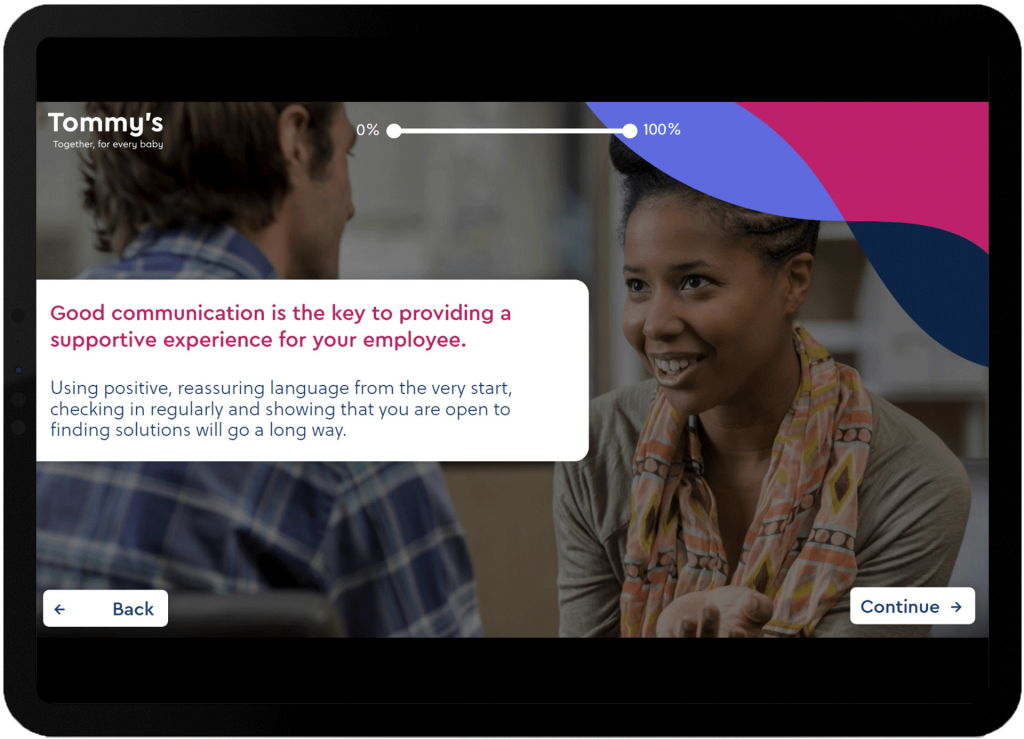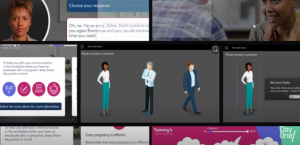Here we look at the concept of extended enterprise training and how it can be maximised with elearning content and platforms. We also show some examples of extended enterprise learning in action.
What is Extended Enterprise Learning?
Delivering extended enterprise learning using online training is a strategic approach to educating external stakeholders such as customers, partners, and resellers about your products, services, and policies. This type of training can significantly enhance the value chain, improve product adoption, increase customer satisfaction, and drive revenue growth.
How to Deliver Extended Enterprise Training with eLearning
Here’s a guide to implementing an effective extended enterprise training programme using elearning to deliver it, and with continuous improvement baked in:
1. Define Your Objectives
- Identify Goals: Clearly define what you aim to achieve with your extended enterprise training programme. Goals could include improving product knowledge, compliance training, or enhancing sales techniques.
- Understand Your Audience: Tailor your training content to the specific needs and learning behaviours of your external audiences. Different stakeholders might require different training materials.
2. Choose the Right eLearning Platform
- Scalability and Accessibility: Select or develop a platform that can scale with your business and is accessible on various devices, including mobile, to accommodate learners’ preferences.
- Customisation and Branding: The platform should allow for customisation to reflect your brand identity and create a seamless experience for learners.
- Tracking and Reporting: Opt for a platform with robust tracking and reporting capabilities to monitor learner progress, engagement, and course effectiveness.
3. Develop Engaging Content
- Interactive Elements: Incorporate interactive elements such as quizzes, simulations, and gamification to increase engagement and knowledge retention.
- Microlearning: Use microlearning techniques to break down complex information into small, manageable chunks that are easier to digest.
- Relevant and Up-to-Date: Ensure the content is relevant to the learners’ needs and regularly updated to reflect the latest product features or policy changes.
4. Implement a Seamless Onboarding Process
- Easy Access: Ensure that registering and accessing the training is straightforward. Consider single sign-on (SSO) options to simplify the login process.
- Guided Tour: Provide a guided tour or an introductory course to help learners familiarise themselves with the eLearning platform and training structure.
5. Foster a Learning Community
- Discussion Forums and Social Learning: Encourage interaction among learners through discussion forums, social media groups, or peer-to-peer learning opportunities. This builds a sense of community and enhances the learning experience.
- Support and Feedback: Offer timely support and gather feedback to continuously improve the training program.
6. Monitor and Evaluate Success
- Learner Analytics: Use the platform’s analytics tools to track engagement, course completion rates, and quiz scores to assess the effectiveness of the training.
- Surveys and Feedback: Regularly solicit feedback from learners to identify areas for improvement and to ensure the training remains aligned with their needs.
- ROI Analysis: Evaluate the program’s success by measuring its impact on business goals, such as increased sales, higher customer satisfaction scores, or reduced support calls.
7. Continuous Improvement
- Iterate Based on Feedback: Use learner feedback and analytics insights to refine and update the training content and delivery methods continuously.
- Stay Updated with eLearning Trends: Keep abreast of the latest eLearning trends and technologies to enhance the learning experience and effectiveness of your training program.
Extended Enterprise eLearning Examples
Over the last 25 years, we’ve created training solutions for some of the world’s biggest brands, and many of these organisations have needed to train external audiences, as well as their own employees. Here are just a few extended enterprise elearning examples from our work:
BOC
BOC is the largest provider of industrial gases in the UK and Ireland. They needed an extended enterprise learning and customer education solution to train users of their products.
We created custom 3D, interactive training courses on Gas Safety, Cryogenics and Gas Safety that are tailored for both front line users and managers. This engaging elearning content is used across multiple sectors, including Hospitals & Private Healthcare, Food Manufacturing, Universities, and Hospitality & Catering.
Learn more about this 3D interactive training for BOC.
Tommy’s
Tommy’s is the UK’s largest charity focused on researching the causes and prevention of pregnancy complications, and on supporting those affected.
Our extended enterprise learning solution targeted managers in order to help them better support employees going through pregnancy related issues. We created bespoke learning content, as well as custom LMS to deliver it.
The training is used by many well-known UK and global brands, and this innovative solution was ‘Highly Commended’ at the 2022 Third Sector Awards in their ‘Breakthrough of the Year’ category.
Read more about this bespoke eLearning Content & LMS for UK charity, Tommy’s.
OGCI
The Oil and Gas Climate Initiative (OGCI) brings together 12 of the world’s largest petrochemical companies to progress the move towards net-zero emissions.
OGCI wanted to benefit from our Learning By Doing approach to elearning content in order to increase learner engagement with compliance training. We worked closely with their subject matter experts to create content relevant to their members’ local, as well as international legislations.
Read more about our competition law and anti-corruption training project with OGCI.
Conclusion
Implementing an extended enterprise training programme using eLearning requires careful planning, a focus on learner engagement, and ongoing evaluation to ensure it meets its objectives. By following these steps, organisations can create a powerful training ecosystem that benefits not only their external partners and customers but also contributes significantly to their overall success.
If you’d like to discuss how we can help you with extended enterprise training for your external stakeholders, contact us here at Day One Technologies.






















